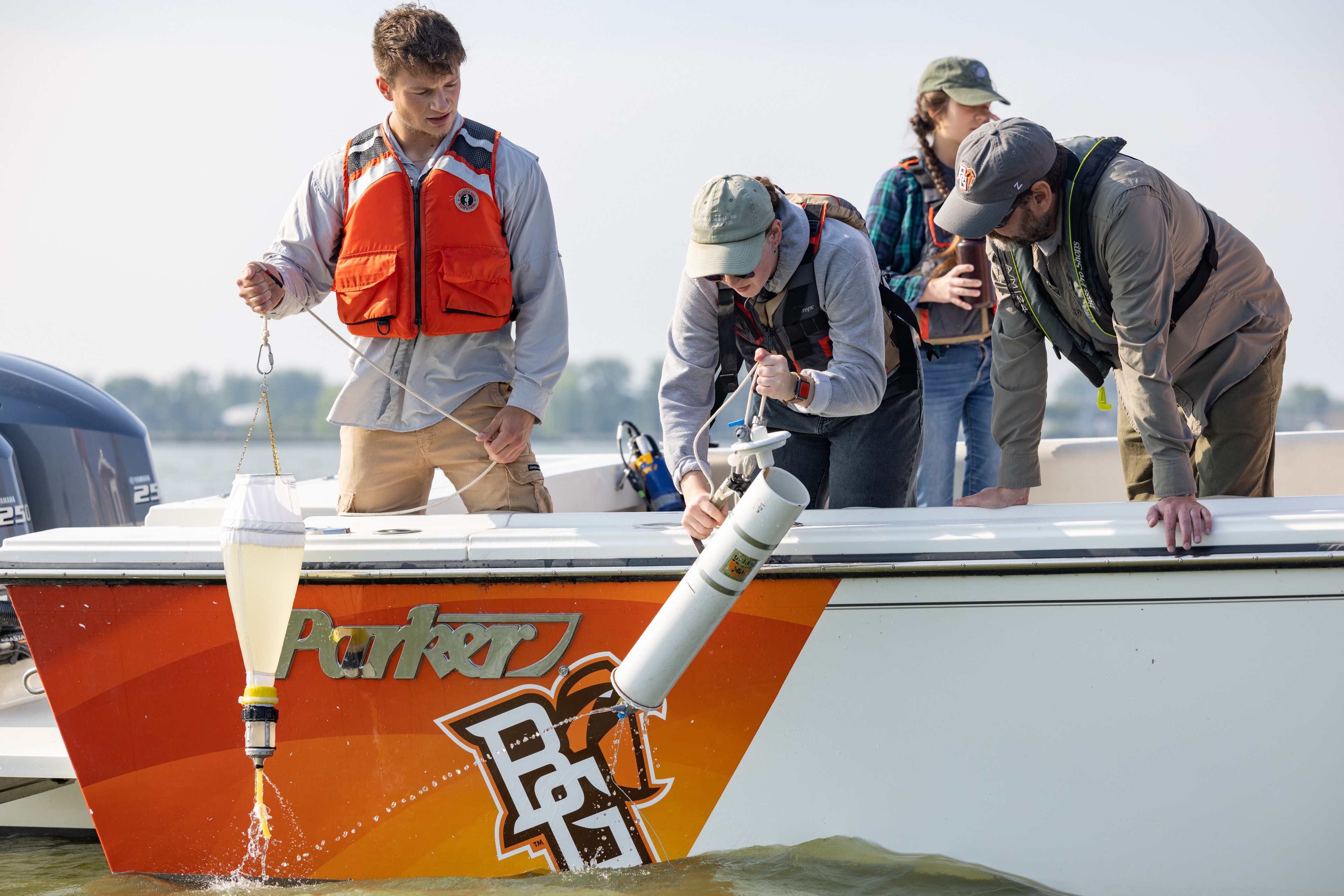Bachelor of Science in Public Health

A bachelor degree in public health with an environmental health concentration will prepare students for a career as an environmental health professional. Environmental health is a core area of public health. Environmental health professionals work in the area of environmental health, safety, sanitation and hygiene. Students may obtain jobs in this field immediately following graduation.
Environmental health professionals work to improve public health by identifying, tracking and addressing environmental risk factors. They are involved in the investigation and prevention of health-related problems within a community, such as air and water pollution, solid and hazardous waste disposal, food-borne illnesses in public eating establishments, water and wastewater treatment, and insect and rodent vectors of disease. Environmental health professionals also play a key role in efforts to prepare and respond to public health emergencies, especially natural disasters for which protection and safety of water and food supplies can be critical.
Environmental health professionals include many titles, such as environmental health practitioner, environmental health officer, and sanitarian. Most environmental health professionals specialize in a particular area, such as drinking water, food safety, school safety, vector control, air quality, swimming pools, and housing, etc. Environmental health graduates of this program will be qualified to take the Registered Environmental Health Specialist/Sanitarian examination leading to professional licensure.
Why earn this degree at BGSU?
The classes are taught by dedicated faculty with professional public and environmental health experience who have the expertise to prepare students for challenging and exciting careers in the public and environmental health field. Students will also have the opportunity to learn and interact with other students with similar interests.
An Exciting Curriculum Prepares Students for Rewarding Careers
The 122 credit hour curriculum exposes students to the concepts necessary for success in the public and environmental health workplace. Students have the option to take many of the courses online. A required internship provides students with the opportunity to receive training linked to practice. An important component of public health training is the integration of learning with practical experience.
Courses include the following and cover key public and environmental health areas:
- Biology
- Chemistry
- Geology
- Statistics
- Psychology
- Sociology
- Environmental Studies
- Environmental Ethics
- Community Health
- Environmental Planning
- Public Administration
- Public Health
- International Health
- Research Methods Public & Allied Health
- Human Diseases
- Environmental Politics & Policy
- State and Local Government
- Environmental Justice
- Emerging Infectious Diseases
- Public Health & Sanitation
- Epidemiology
- Issues in Global Health
- Geospatial Science
- Applications in Environmental GIS
- Technical Writing
Internships Provide Valuable Experiences
Students will pursue a six-week internship with a public health organization of their choice. The internship program is meant to provide students a hands-on experience to enhance their classroom learning and allows students to apply this knowledge to real-world problems and situations. The internship experience also provides an opportunity for students to better understand their career options and preferences, as well as make invaluable contacts with practitioners and professionals.
Organizations who hire graduates with public health degrees with an environmental health concentration:
- State and local health departments
- Food processing and manufacturing plants
- Local water districts
- Restaurant chains
- Air quality management districts
- Grocery store operations
- Federal and State EPA
- Pharmaceutical companies
- Environmental consulting firms
- Health insurance companies
Highlights
- The U.S. Bureau of Labor Statistics reported that 90,000 workers are employed as environmental health professionals
- Environmental health practitioner salaries range from $45,000 - $113,000 (Source: explorehealthcareers.org)
- Qualified public health professionals with environmental training are in high demand
Learning Outcomes
Upon completion of the baccalaureate, students in Public Health are expected to:
- Define the role of federal and state regulatory programs, guidelines, and authorities that control environmental health issues;
- Describe risk factors and modes of transmission for infectious and chronic diseases and how these diseases affect public health;
- Discuss the role of gender, race, ethnicity, and other evolving demographics in public health and disparities in public health;
- Explain the basic general mechanisms of toxicity in eliciting response to various environmental exposures;
- Read and critically analyze scientific and professional articles from the field of public health;
- Demonstrate effective written and oral communication skills in an array of media;
- Describe the role of research, evaluation, and use of data in public health;
- Use analysis methods appropriate for various research objectives;
- Engage in teamwork to apply collaborative, interdisciplinary approaches for improving population health;
- Demonstrate practical skills for anticipating, recognizing and responding to public health emergencies;
- Analyze ethical concerns, conflicts of interest, and alternative viewpoints that arise in the field of public health;
- Describe approaches for assessing, preventing, and controlling environmental hazards that pose risks to human health and safety.
Accreditation and/or Program/Cluster Review
Bowling Green State University [BGSU] is accredited by the Higher Learning Commission. BGSU has been accredited by the Higher Learning Commission since 01/01/1916. The most recent reaffirmation of accreditation was received in 2022 - 2023. Questions should be directed to the Office of Institutional Effectiveness.
Professional Licensure (If applicable)
Bowling Green State University programs leading to licensure, certification and/or endorsement, whether delivered online, face-to-face or in a blended format, satisfy the academic requirements for those credentials set forth by the State of Ohio.
Requirements for licensure, certification and/or endorsement eligibility vary greatly from one profession to another and from state to state. The Public Health program leads to professional licensure. For more information about licensure, click here.
Gainful Employment (If applicable)
Under the Higher Education Act Title IV disclosure requirements, an institution must provide current and prospective students with information about each of its programs that prepares students for gainful employment in a recognized occupation.
The Public Health program is not a recognized occupation that requires a Gainful Employment disclosure.
Updated: 05/20/2025 03:28PM
